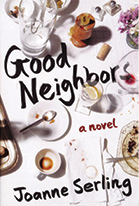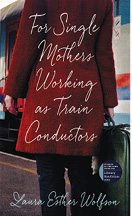We receive news about many more publications, media, and merchandise than we can print in the Cornell Alumni Magazine. Please browse our Cornell Authors page for even more Big Red creativity.
 |
When Arena—the winningest coach in U.S. soccer history—helmed the men’s national team in the late Nineties and early Aughts, they had their best-ever World Cup performance, making it to the quarterfinals in 2002. In 2016, he was again recruited to lead the team after they landed near the bottom of the rankings. Around that time, Arena signed a book deal; it was planned to chronicle how he turned the team around to qualify for the 2018 World Cup. Instead—after they were eliminated in one of the most disappointing losses in U.S. soccer history—he offers this critical look at how the sport is played and managed in this country.
In his memoir, subtitled “A coach’s blunt take on the state of American soccer after a lifetime on the touchline,” Arena gives insights on the industry, from recruiting young players to incorporating foreign athletes. He recounts some of his experiences from forty-plus years as a coach, including interactions with legendary players such as David Beckham. In the chapter “Animal House at Cornell,” Arena reminisces about living in a fraternity and playing soccer and lacrosse on the Hill. The book culminates with an outline for reform, which includes bringing in directors with a better understanding of the technical aspects of soccer, as opposed to just the financial or political sides. “One of the key problems with soccer in the United States right now is the inability to make a distinction between making money and developing the sport,” he writes. “We’ve pretended that the two goals are the same, when in fact they’re only somewhat related.”
|
 |
From the style director of home décor site Joss & Main comes this hardcover with tips to bedeck your living spaces. Garlough rejects a number of outdated design notions that, she says, have been around since “people bought forever homes as newlyweds”—such as the importance of investing in expensive furniture that will last a lifetime. Instead, she offers suggestions that take into account such obstacles as a tight budget and oddly configured spaces. “In this age of flash sales, Pinterest, and incredibly gorgeous home-design blogs and magazines, there’s no shortage of inspiration,” Garlough writes in the introduction. “What we need is the guts to decorate our own homes.”
|
 |
Serling’s debut novel centers around four young, affluent families who live on the same street in an upscale Boston suburb. While they try to make their lives appear effortless and glamourous, each couple is hiding family secrets to preserve their social status. As Serling writes (from the point of view of one of the mothers): “We were eager for each other’s friendship and reassurance. Convinced that our friends could do for us what our spouses were supposedly doing but simply couldn’t: alleviating the boredom and the isolation of middle age, helping us to navigate this strange furlough called parenthood.” Tension surges when one couple adopts a child from Russia—and the others begin to suspect cruelty and neglect. “Serling succeeds at dialing up a sense of dread,” says Publisher’s Weekly. “While many novels have tackled the subject of suburban secrets and unease, this one excels in particular at exploring the bonds among families.”
|
 |
In this collection of essays, which won the Iowa Prize for Literary Nonfiction, Wolfson reflects on her varied life experiences. She has survived a degenerative lung disease; lived in Russia, France, and the U.S.; been married to two very different men; and worked as a multilingual, globe-trotting translator before transitioning to more mundane employment. “State banquets at the Kremlin, mafia trials, forgotten literary masterpieces, KGB files declassified under Yeltsin (later to be reclassified under Putin)—I translated them all,” Wolfson writes. “It was a halcyon time.” The memoir’s unusual title stems from a quirky, bygone (and possibly inaccurate) fact of Soviet culture: if single mothers who worked as train conductors had to make long trips and had no one to mind their children, twenty-four-hour day care was available. Says Kirkus: “This evocatively detailed and richly experienced writing reflects a life with no dearth of material.”
|
 |
Tisch and his coauthor have compiled seventy-two diverse essays by and about immigrants and their journeys to America. While some are penned by public figures—such as New York Governor Andrew Cuomo, House Minority Leader Nancy Pelosi, and former Congresswoman Gabrielle Giffords, MRP ’97—most are by average Americans, writing about themselves or their ancestors. Both coauthors also contributed personal stories. (Tisch, former vice chairman of Cornell’s Board of Trustees, writes about his great-grandfather, who came to America in 1904 with his wife and children.) The essays are grouped into ten sections, based on the driving cause behind each person’s motivation for coming to the U.S.—from love and opportunity in this country to oppression and violence back home. The stories, says Kirkus, “coalesce to counter the narrative of fear offered by the loud anti-immigrant voices throughout the country.”
|
Cornell authors, tell us about your book.







